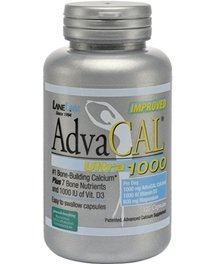Vitamin K bone density in Osteoporosis, Osteopenia
Vitamin K. As early as 1992, the importance of this vitamin for building bones was discovered by Japanese researchers. They found that "high does of vitamin K [in] postmenopausal women for 24 and 48 week . . . significantly increase bone mass compared to women treated with a placebo."
Source: Orinmo, H; Shiraki,M fujita, T; Onomura, T; InoueamdLisjoda, K. 1992. "Clincial evaluation of menatetrenome in the treatment of involuiontal osteoporosis:a double-blind multicenter compariative study with lahydroxy vitamin D." J. Bone Miner. Res. 7 (Suppl. 1) S122
Several other studies that seem to indicate this vitamin has a positive effect on bone formation in postmenopausal women.
For example: A study by done by Vermeer, M H Knapen, and L J Schurger that was published in 1998 states:
"it was shown that administration of 1-10 mg of Vitamin K is paralleled by a moderate increase in the serum markers for bone formation (osteocalcin and bone alkaline phosphatase), or by a slight decrease in the urinary hydroxyproline exceretion ( a marker for bone resorption), and by a reduction of uniary calcium loss. Most prominent effects were obtained in fast losers of calcium."
Source: Kaspen,JHJ, Hamulyik K, Vermeer, C. The effect of vitamin K supplementation on circulating ostecalcin (bone GLA-protein) and urinary calcium excretion. Ann. Intern Med 1989; III: 1001-5.
Knapen, MHJ, Jie, K-SG, Hamulyik, K et al. Vitamin K induced changes in markeers for osteoblast activity and urinary calcium loss. Calcif Tissue Int. 1993; 53 81-5.
As a result of these studies, a number of calcium supplements, now include it among their ingredients. Other companies package the vitamin by itself.
Which form of this vitamin helps bones?
This vitamin comes in several different forms. K1 (phylloquinone) is found in green leafy vegetables. K2 K2 (menaquinone) in found organ meats, egg yolks, and dairy products.
It is K2 (especially K2 as menaquinone-7 (MK-7) that appears to be more necessary than K1 for bone building. Studies have shown,for example, that in those parts of Japan where Natto, a fermented soy bean dish, is popular, people have especially good bone density. Natto is rich in K2 as menaquinone-7 (MK-7).
Some cautions:
Since this vitamin is aids the clotting of blood, persons taking wafarin or other blood thinning substances need to speak with their health care provider before adding it to their diet or supplement regime. You do not want to do anything that could interfere with your blood thinning medication. Such consultation is important and should not be neglected.
Again, if you want to add this vitamin to your bone building regime, I hope that you will consider talking in a prepared bone building supplement, rather than as a 'stand-alone' supplement. This way you are sure that the ingredients are in the correct proportions.

Getting your K as part of a bone building supplement means that you will always have the correct dosage (ratio between K and calcium)
Lane Labs Advacal Ultra has the right dosage. Be sure to get the Ultra form if you want this vitamin - the other forms do not include it.
If you have an experience or information you would like to share on this topic, please use the form below. NOTE: be sure to put the url and/or exact title of this page at the beginning of your submission or I will not know where to put your contribution. Thanks.
Have you experience with this?
Do you have experience with this? Please share it!

